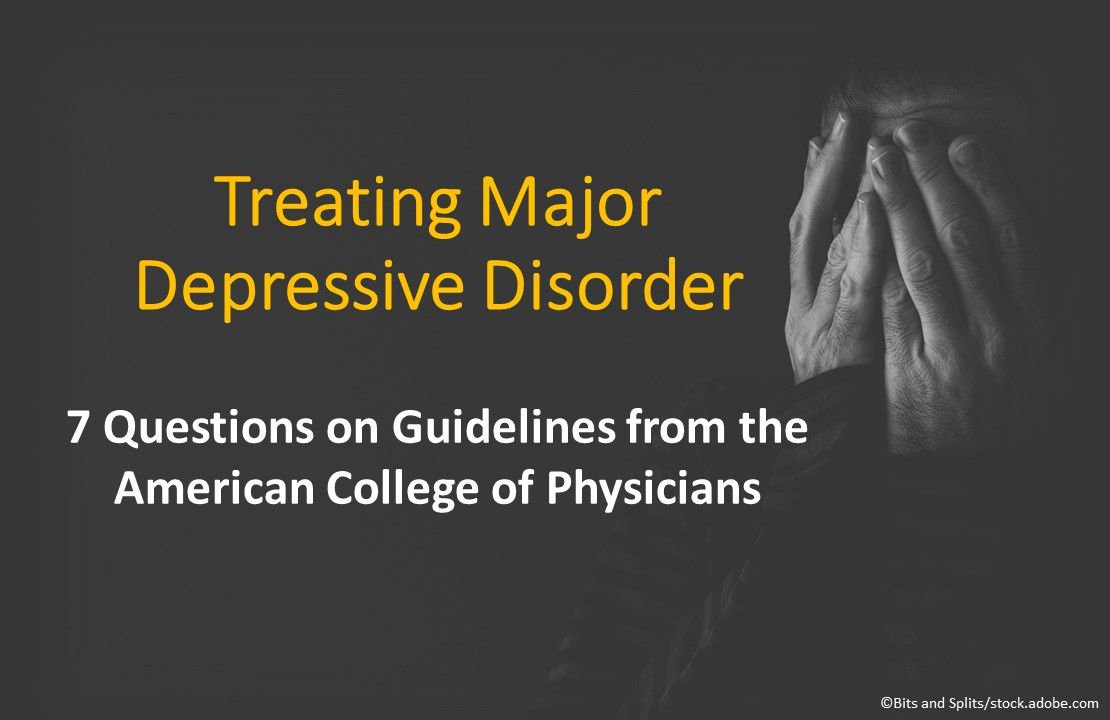© 2025 MJH Life Sciences™ , Patient Care Online – Primary Care News and Clinical Resources. All rights reserved.
Treating Major Depressive Disorder: 7 Questions on Guidelines from the American College of Physicians
Are you caught up on the latest guidance for the nonpharmacologic and pharmacologic treatment of major depressive disorder? Find out with this quick quiz.
Test your knowledge on guidelines for the nonpharmacologic vs pharmacologic treatment of major depressive disorder (MDD), issued by the American College of Physicians (ACP) in 2016.
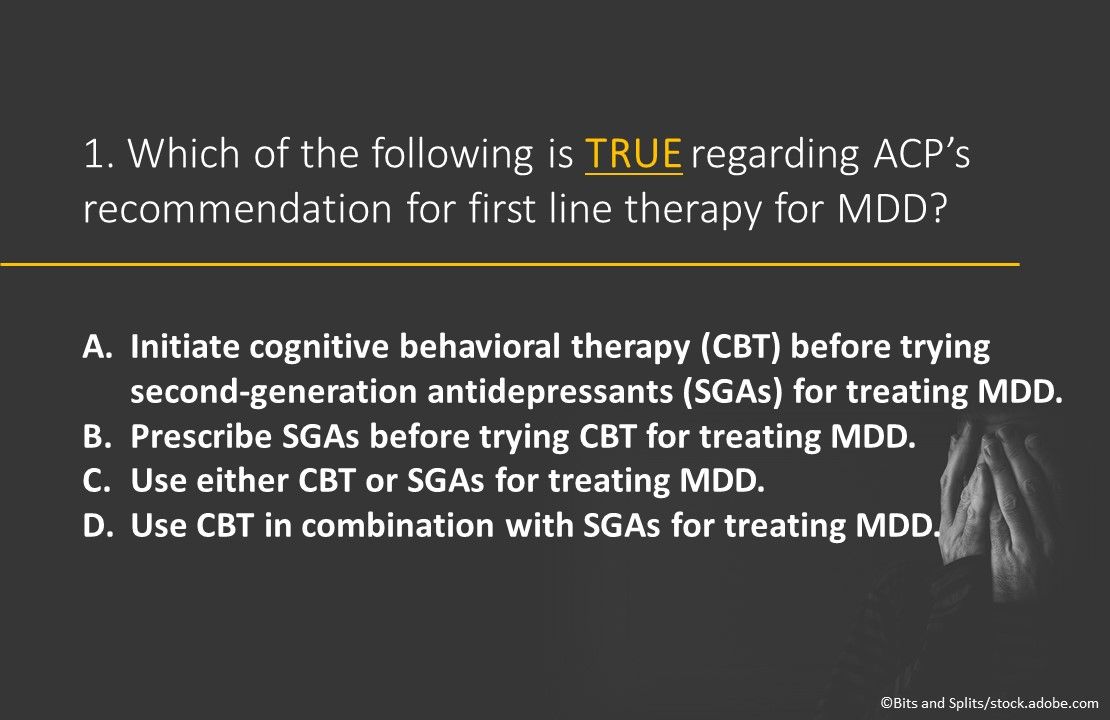
Question 1. Which of the above is TRUE regarding ACP’s recommendation for first line therapy for MDD?
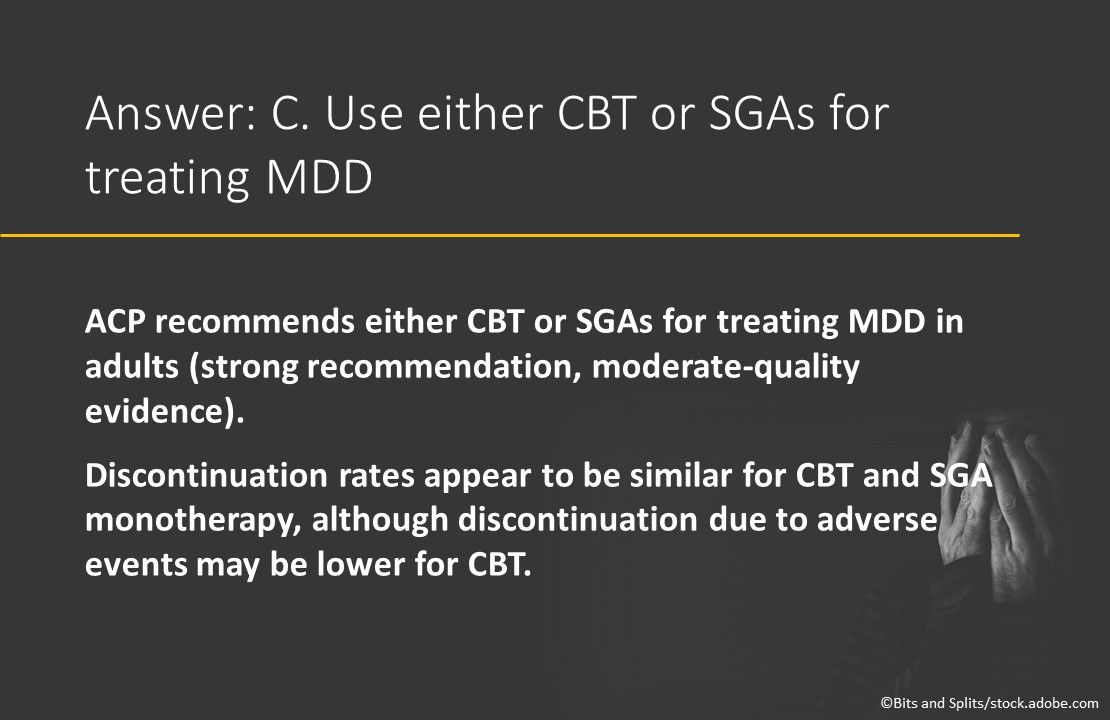
Answer: C. Use either CBT or SGAs for treating MDD. ACP recommends either CBT or SGAs for treating MDD in adults (strong recommendation, moderate-quality evidence). Discontinuation rates appear to be similar for CBT and SGA monotherapy, although discontinuation due to adverse events may be lower for CBT.
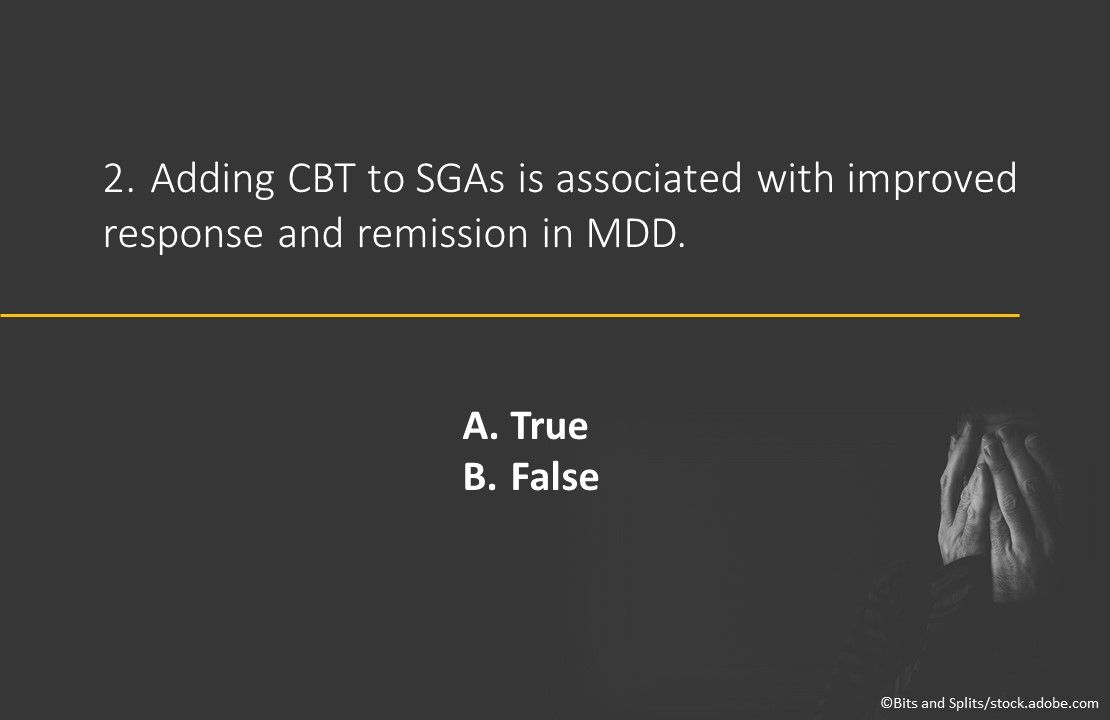
Question 2. True or false? Adding CBT to SGAs is associated with improved response and remission in MDD.
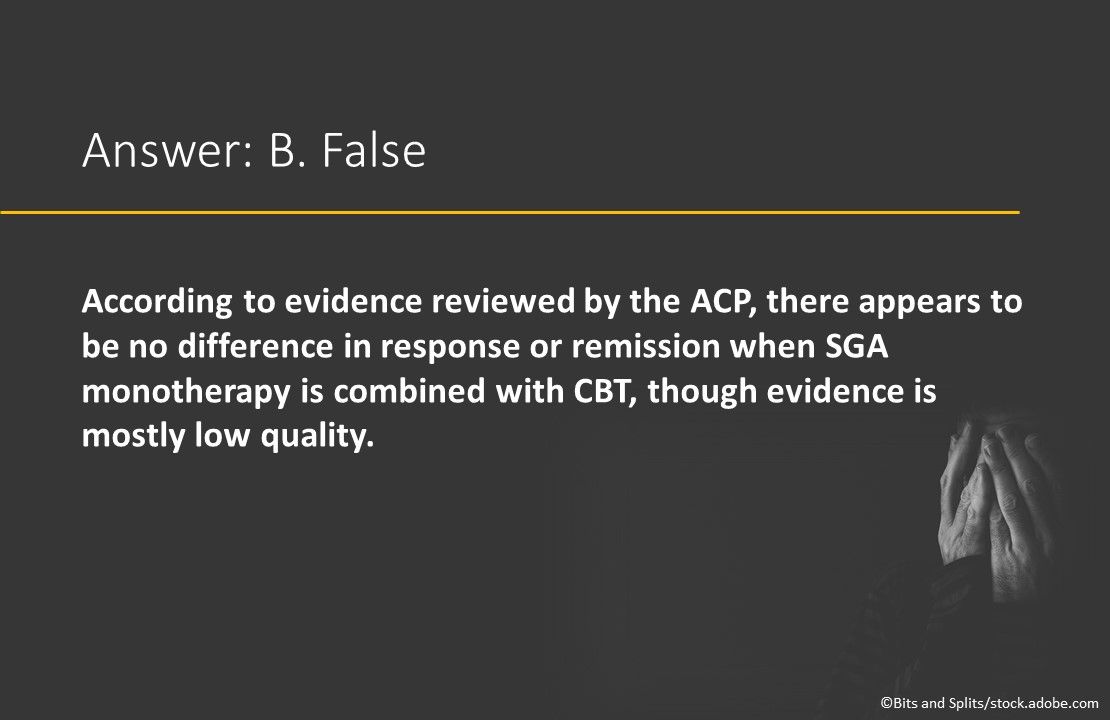
Answer: B. False. According to evidence reviewed by the ACP, there appears to be no difference in response or remission when SGA monotherapy is combined with CBT, though evidence is mostly low quality.
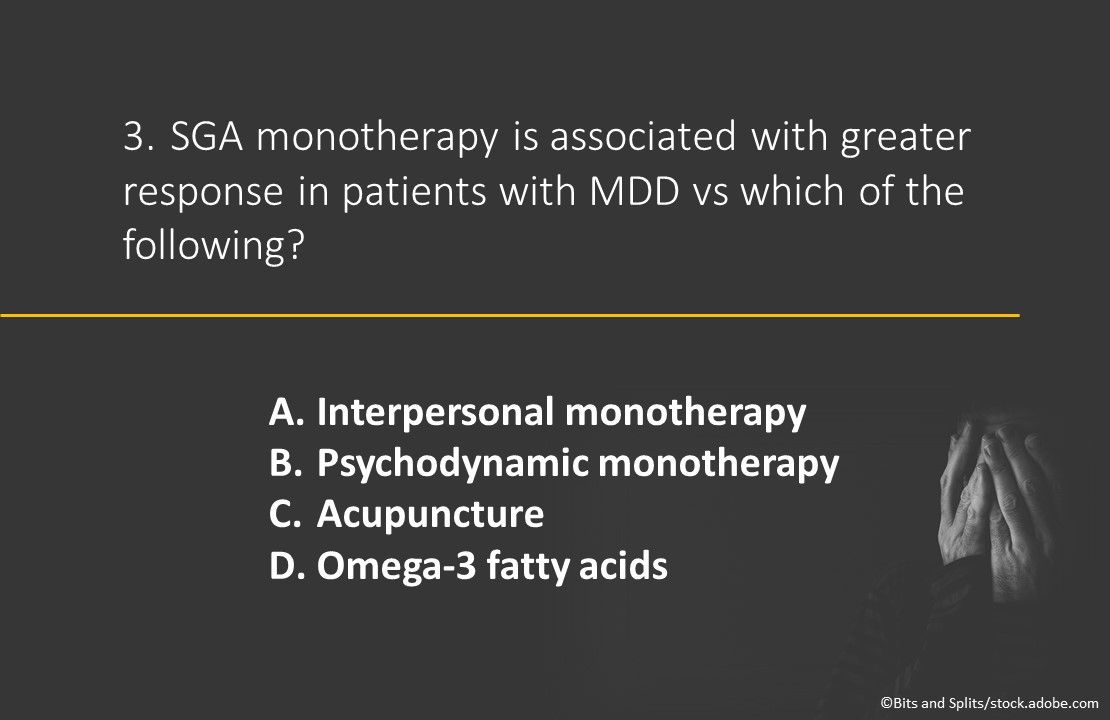
Question 3. SGA monotherapy is associated with greater response in patients with MDD vs which of the above?
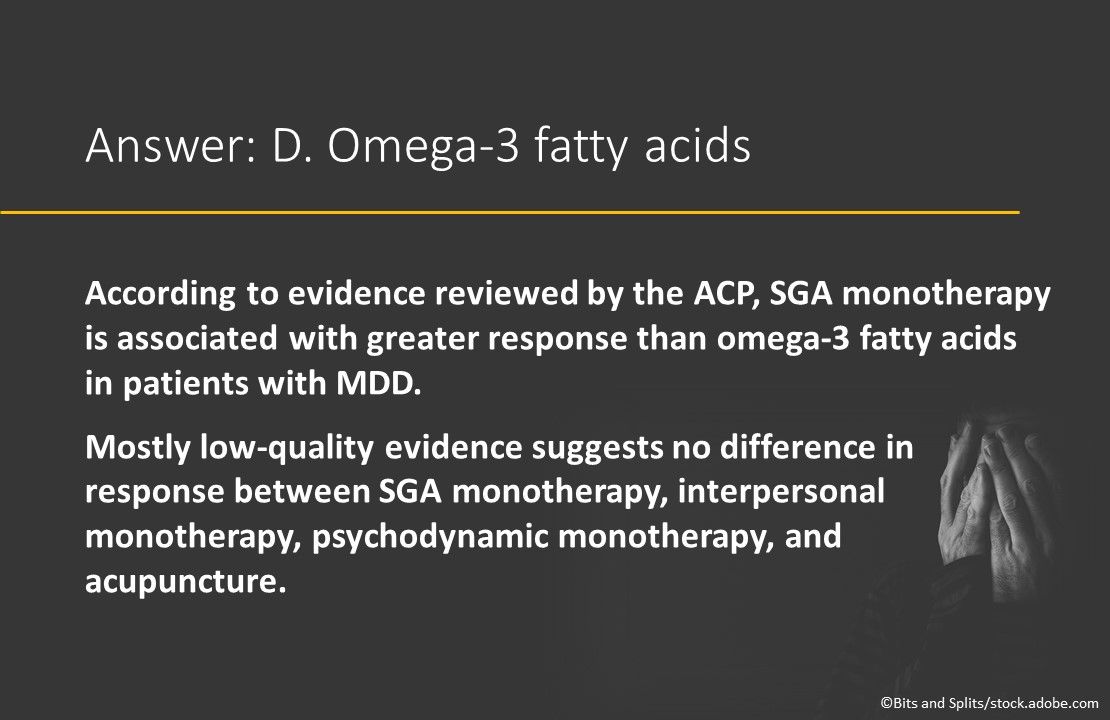
Answer: D. Omega-3 fatty acids. According to evidence reviewed by the ACP, SGA monotherapy is associated with greater response than omega-3 fatty acids in patients with MDD. Mostly low-quality evidence suggests no difference in response between SGA monotherapy, interpersonal monotherapy, psychodynamic monotherapy, and acupuncture.
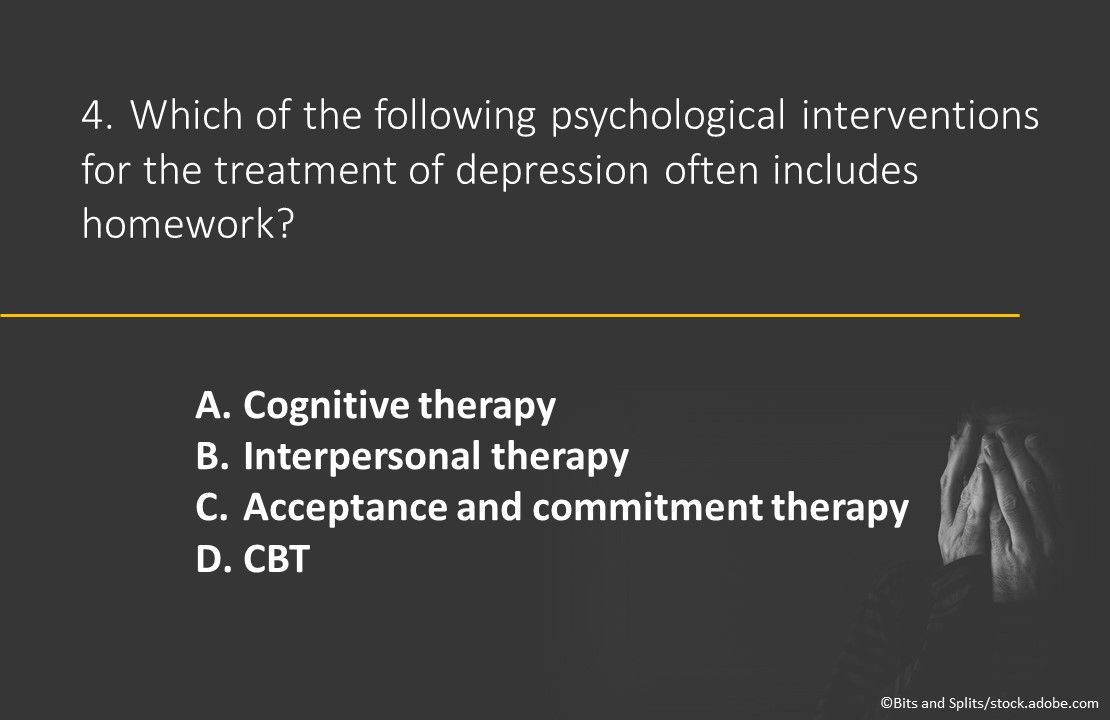
Question 4. Which of the above psychological interventions for the treatment of depression often includes homework?
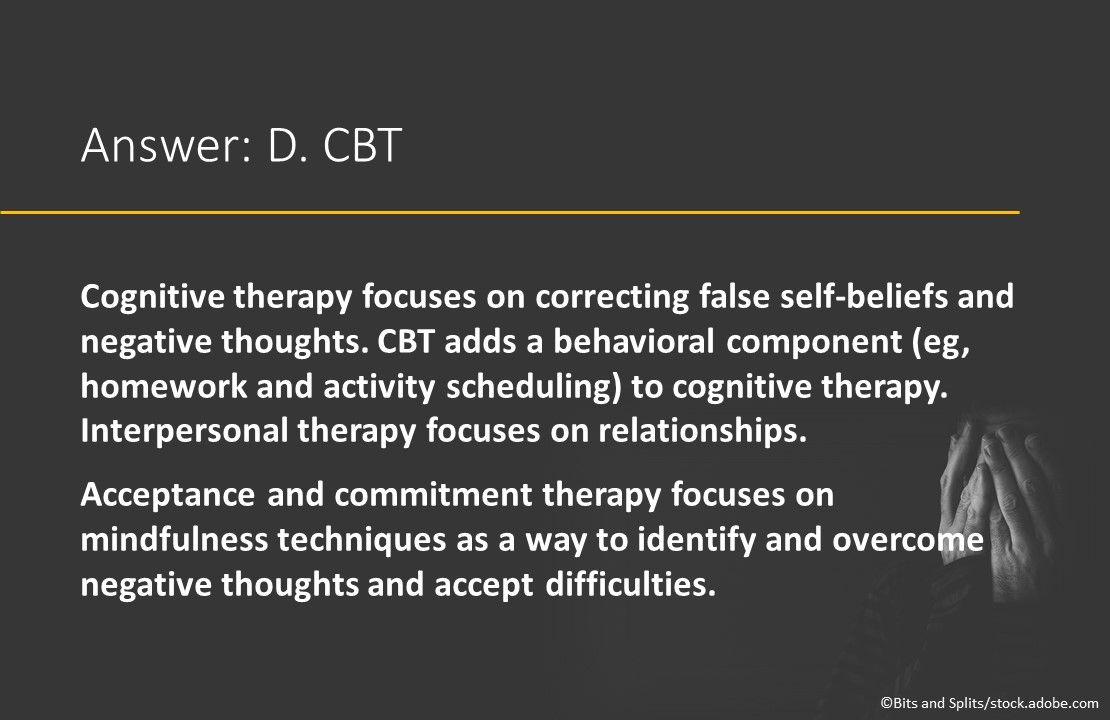
Answer: D. CBT. Cognitive therapy focuses on correcting false self-beliefs and negative thoughts. CBT adds a behavioral component (eg, homework and activity scheduling) to cognitive therapy. Interpersonal therapy focuses on relationships. Acceptance and commitment therapy focuses on mindfulness techniques as a way to identify and overcome negative thoughts and accept difficulties.
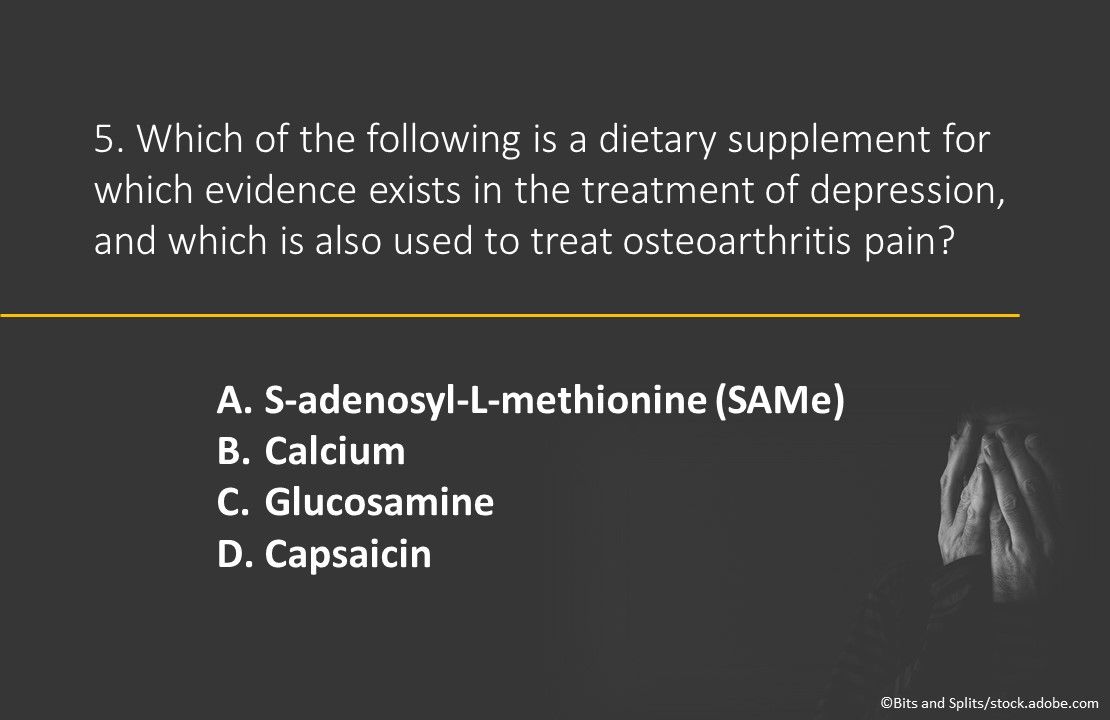
Question 5. Which of the above is a dietary supplement for which evidence exists in the treatment of depression, and which is also used to treat osteoarthritis pain?
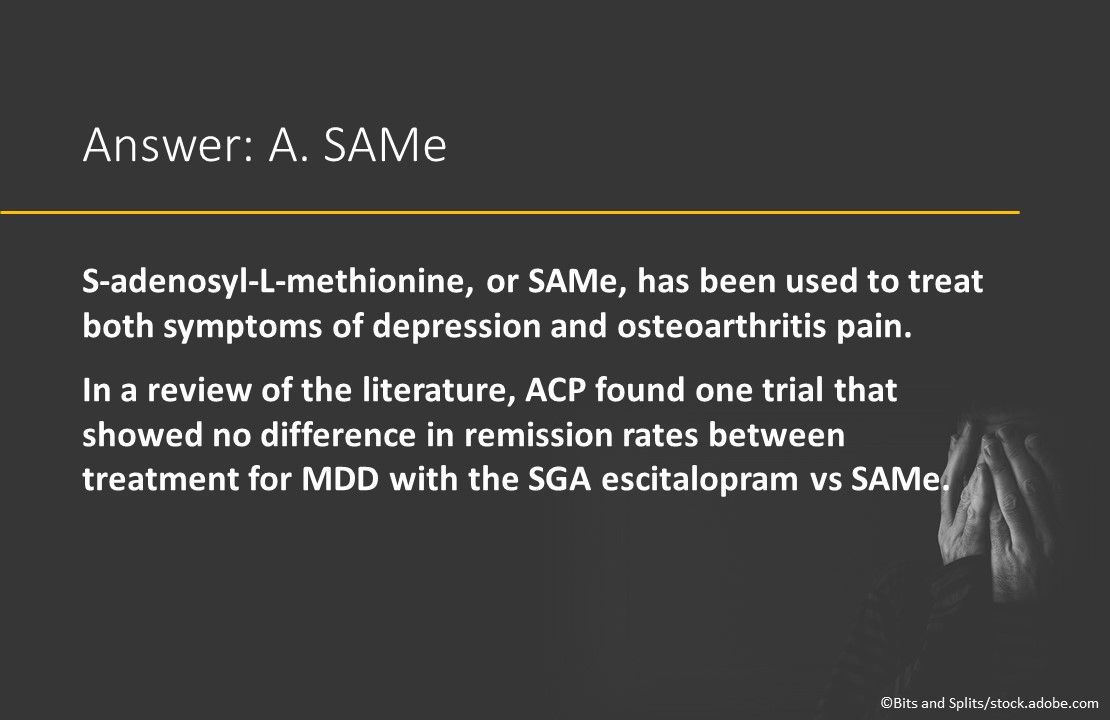
Answer: A. SAMe. S-adenosyl-L-methionine, or SAMe, has been used to treat both symptoms of depression and osteoarthritis pain. In a review of the literature, ACP found one trial that showed no difference in remission rates between treatment for MDD with the SGA escitalopram vs SAMe.
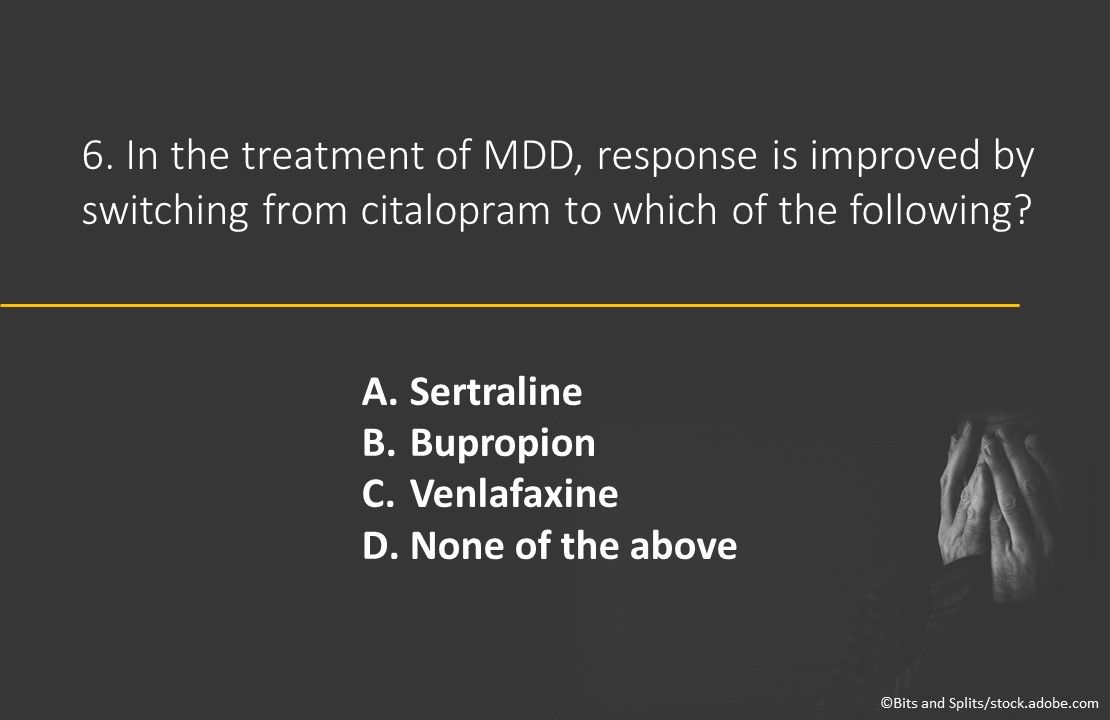
Question 6. In the treatment of MDD, response is improved by switching from citalopram to which of the above?
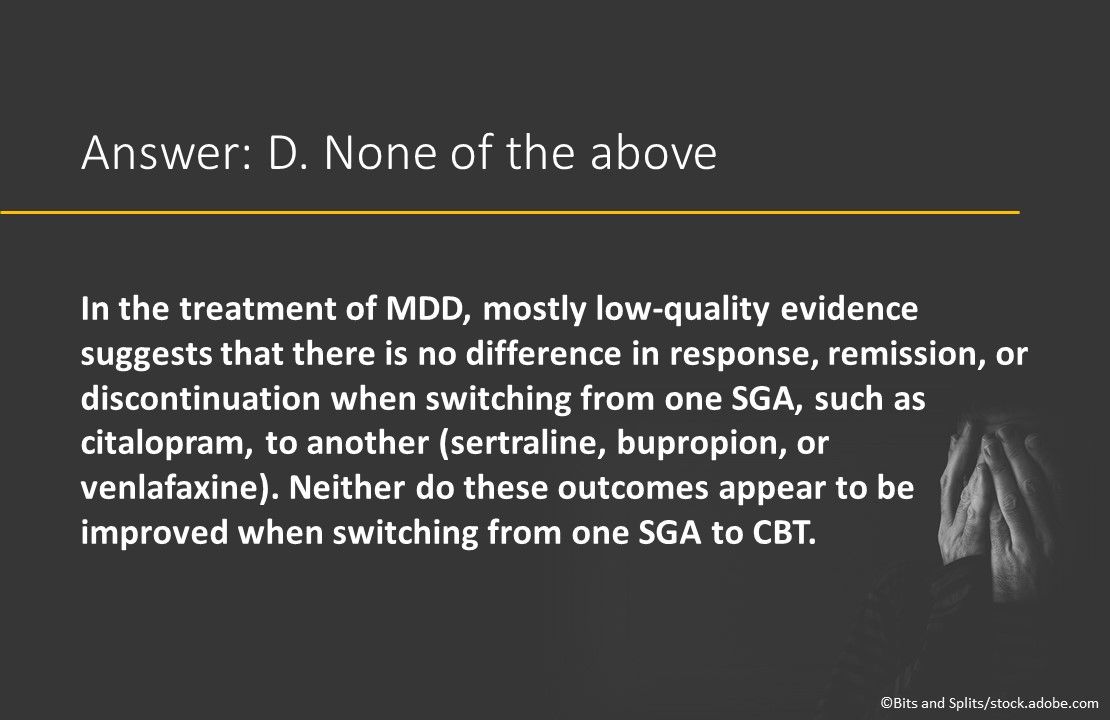
Answer: D. None of the above. In the treatment of MDD, mostly low-quality evidence suggests that there is no difference in response, remission, or discontinuation when switching from one SGA, such as citalopram, to another (sertraline, bupropion, or venlafaxine). Neither do these outcomes appear to be improved when switching from one SGA to CBT.
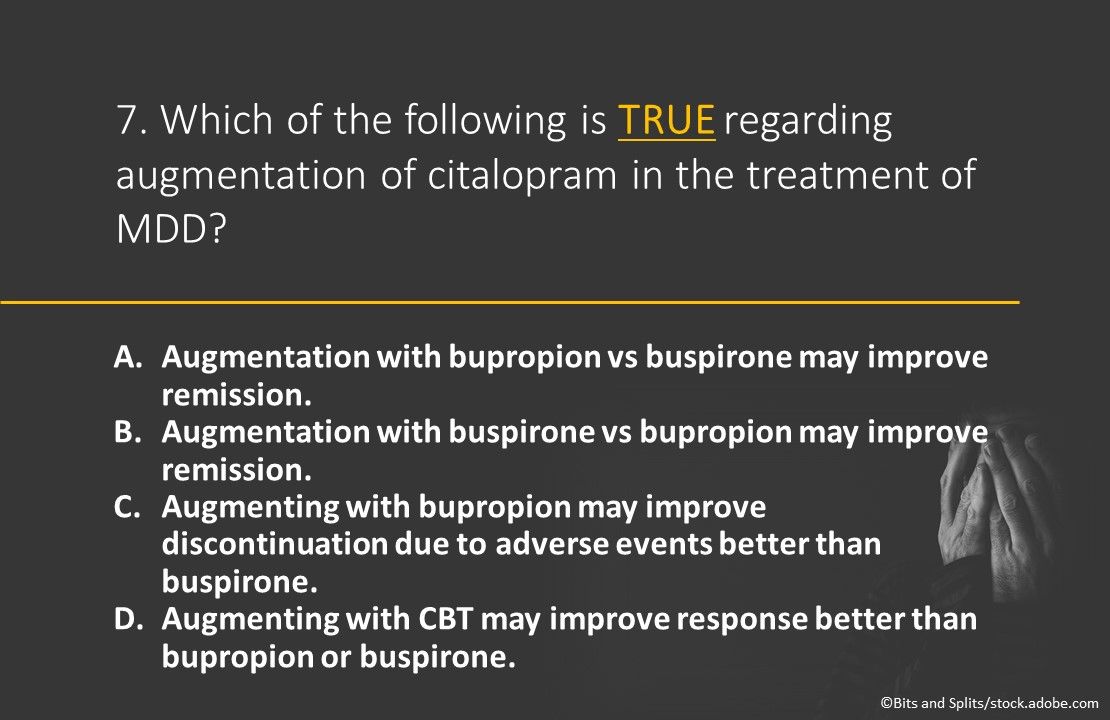
Question 7. Which of the above is TRUE regarding augmentation of citalopram in the treatment of MDD?
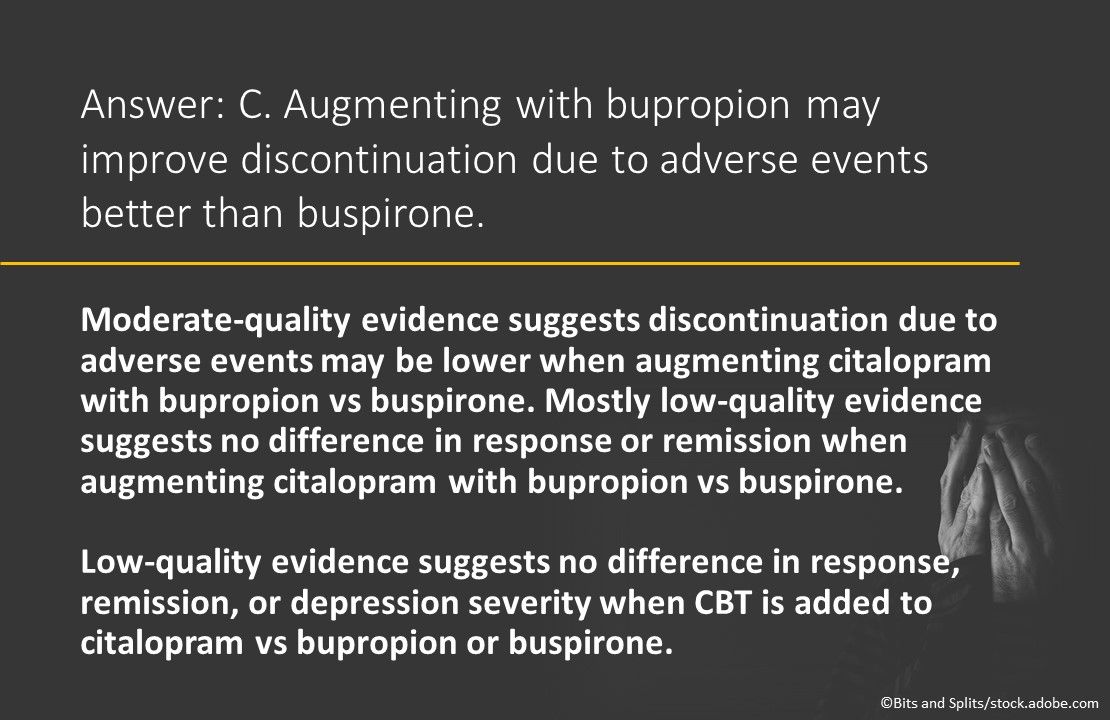
Answer: C. Augmenting with bupropion may improve discontinuation due to adverse events better than buspirone. Moderate-quality evidence suggests discontinuation due to adverse events may be lower when augmenting citalopram with bupropion vs buspirone. Mostly low-quality evidence suggests no difference in response or remission when augmenting citalopram with bupropion vs buspirone. Low-quality evidence suggests no difference in response, remission, or depression severity when CBT is added to citalopram vs bupropion or buspirone.
Related Content:

